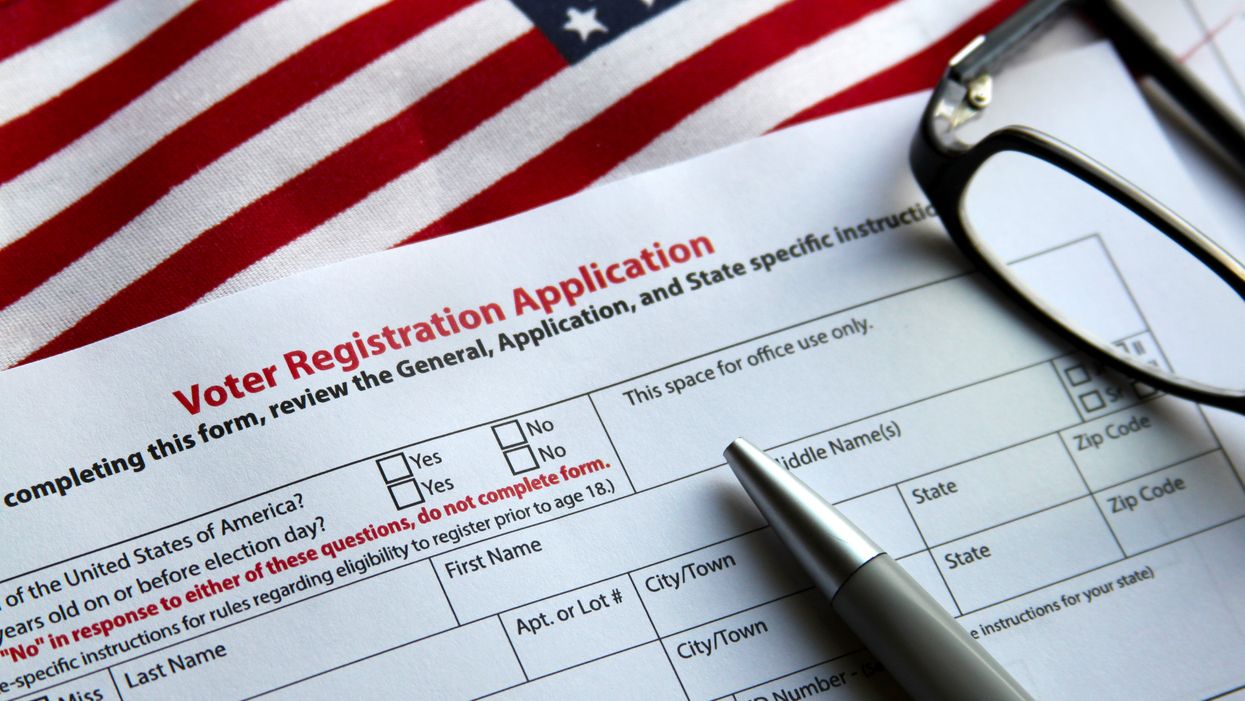There is a routine every election cycle. As the date of the vote nears, I go online and check my voter registration status. For the past 45 years — when I've voted in Mifflinburg, a town of 3,500 in rural central Pennsylvania — I have taken this precaution not because I think I did anything wrong, but because I follow the news.
Last year, counties in California began purging 5 million voters from their rolls following a lawsuit from the conservative group Judicial Watch. It was one of numerous such efforts in recent years and, as we get close to four months from a critical presidential election in November, the group has turned its sights to my home state, suing to remove 800,000 voters.
Judicial Watch claims the three bellwether suburban Philadelphia counties in question — Delaware, Chester and Bucks — removed only 17 inactive voters in 2017 and 2018. Bucks County official say that's not true and that they removed 14,050 in 2018 alone. With all three having more registered Democrats than Republicans, this looks like a move more concerned with voter suppression than fraud.
The right to vote is a fundamental human right. As the president of a non-theistic congregation of ethics, I take that to heart. Attempts to limit or add barriers to the free exercise of that right can erode citizen confidence that their elected officials can represent and act upon the will of the people. When voices are silenced, our democracy perishes.
I am grateful that Pennsylvania Secretary of State Kathy Boockvar seems ready to fight, but we as citizens must do whatever we can to protect the right to vote anywhere it is under attack.
To be sure, ensuring the safety and security of our elections is of paramount importance — and individuals who are erroneously registered should be removed. But too often, purges are used as a partisan weapon. Groups like Judicial Watch claim that when voters are removed, it's because they are either dead or no longer living in the state. Yet, in just the past three years, 870,000 people in Georgia have registered to vote again after being purged. If these voters were dead or lived somewhere else, how did they manage to get back on the rolls?
Delaware, Chester and Bucks are all majority-white counties. But, historically, people of color are the most frequent target of voter suppression. And that doesn't just include voter purges. There's a reason why states with high populations of Black people have tried to implement voter ID laws: 25 percent of Black Americans do not have a government-issued proof of identification. We shouldn't be stripping Black people of one of their basic rights, especially during a time of racial reckoning.
Fighting back against suppression starts with knowledge. In most cases, voters who are purged are not notified until it's too late. Campaigns like Reclaim Our Vote work to notify eligible voters in states with a history of suppression that they may have been removed. My congregation, and others under the umbrella of the American Ethical Union, are working with ROV to send postcards to people in six states where voters may have been purged. Last year, more than one in five postcards sent to residents of North Carolina's 3rd congressional district by ROV resulted in voter registrations.
I would encourage anyone concerned about this issue to volunteer through that group's website.
Yet perhaps the most important thing you can do is speak out against the misinformation that keeps our citizens complacent. Know someone concerned about voter fraud? Let them know that even one of the nation's preeminent conservative think tanks, t he Heritage Foundation, found that no election results were overturned in the states that currently vote primarily by mail.
Do they think the voter purges occurring across the country are legitimate? Let them know that many voters who are removed go on to register again, discrediting the argument they were inaccurately listed as eligible.
Knowledge is power and the more people know the truth, the more voices we have to combat voter suppression.
Regardless of the outcome of the suit in Pennsylvania, I will continue to check my registration status before elections. Your rights may not be under attack but countless others are. I urge all Pennsylvanians and Americans to speak out for their rights.



















Marco Rubio is the only adult left in the room